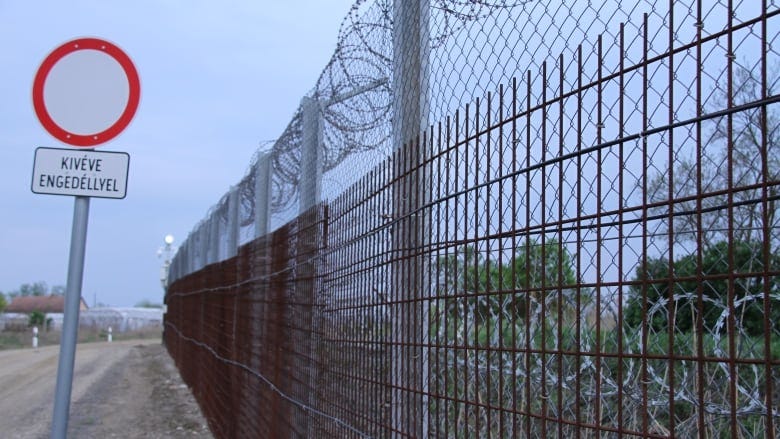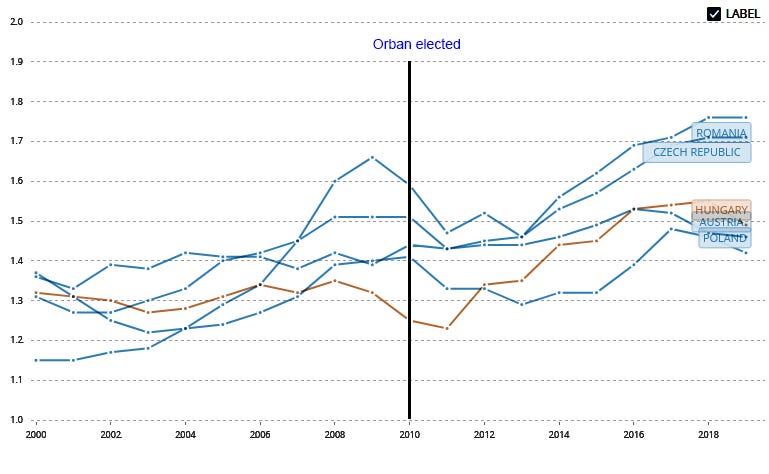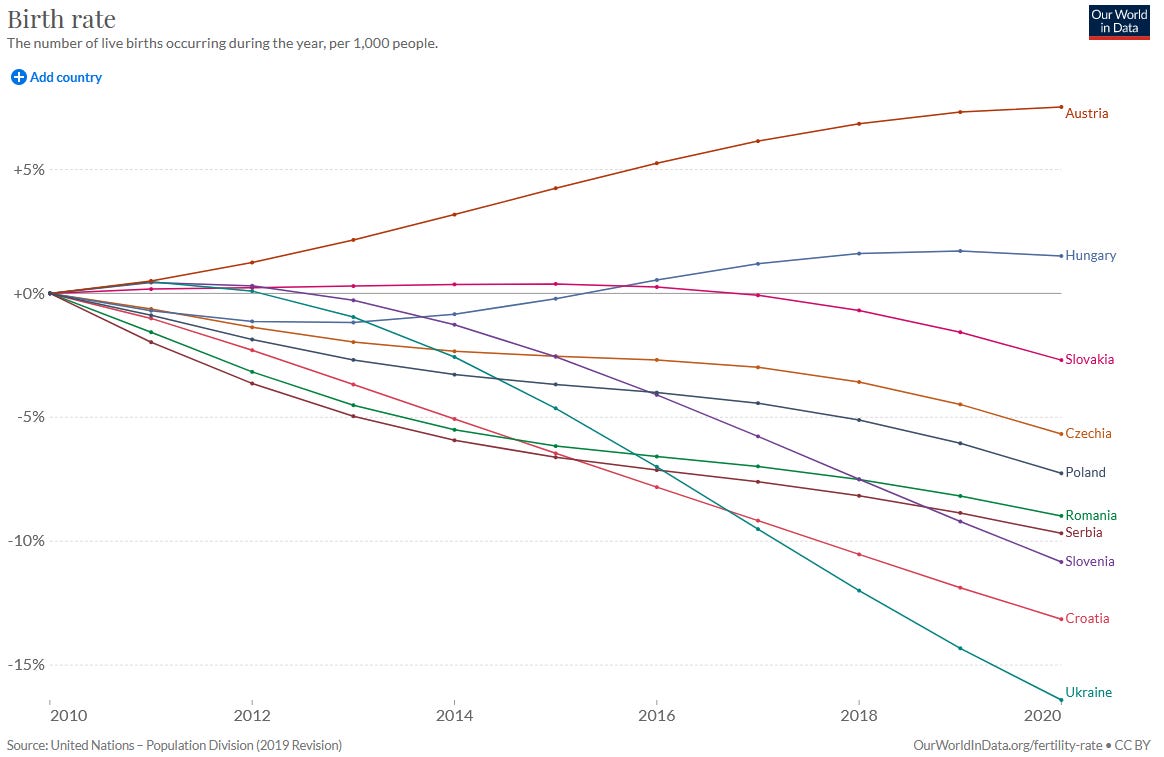Dictator Book Club: Orban
I.
Some are born great. Some achieve greatness. And some are Victor Orban’s college roommates.
Orban: Europe’s New Strongman and Orbanland , my two sources for this installment of our Dictator Book Club, tell the story of a man who spent the last eleven years taking over Hungary and distributing it to guys he knew in college. Janos Ader, President of Hungary. Laszlo Kover, Speaker of the National Assembly. Joszef Szajer, drafter of the Hungarian constitution. All of them have something in common: they were Viktor Orban’s college chums. Gabor Fodor, former Minister of Education, and Lajos Simicska, former media baron, were both literally his roommates. The rank order of how rich and powerful you are in today’s Hungary, and the rank order of how close you sat to Viktor Orban in the cafeteria of Istvan Bibo College, are more similar than anyone has a right to expect.
Our story begins on March 30 1988, when young Viktor Orban founded an extra-curricular society at his college called The Alliance Of Young Democrats (Hungarian abbreviation: FiDeSz). Thirty-seven students met in a college common room and agreed to start a youth organization. Orban’s two roommates were there, along with a couple of other guys they knew. Orban gave the pitch: the Soviet Union was crumbling. A potential post-Soviet Hungary would need fresh blood, new politicians who could navigate the democratic environment. They could get in on the ground floor.
It must have seemed kind of far-fetched. Orban was a hick from the very furthest reaches of Hicksville, the “tiny, wretched village of Alcsutdoboz”. He grew up so poor that he would later describe “what an unforgettable experience it had been for him as a fifteen-year-old to use a bathroom for the first time, and to have warm water simply by turning on a tap”. He was neither exceptionally bright nor exceptionally charismatic.
Still, there was something about him. To call it “a competitive streak” would be an understatement. He loved fighting. The dirtier, the better. He had been kicked out of school after school for violent behavior as a child. As a teen, he’d gone into football, and despite having little natural talent he’d worked his way up to the semi-professional leagues through sheer practice and determination. During his mandatory military service, he’d beaten up one of his commanding officers. Throughout his life, people would keep underestimating how long, how dirty, and how intensely he was willing to fight for something he wanted. In the proverb “never mud-wrestle a pig, you’ll both get dirty but the pig will like it”, the pig is Viktor Orban.
Those thirty-six college friends must have seen something in him. They gave him his loyalty, and he gave them their marching orders. The predicted Soviet collapse arrived faster than anybody expected, and after some really fast networking (“did you know I represent the youth, who are the future of this country?”) Orban got invited to give a speech at a big ceremony marking the successful revolution, and he knocked it out of the park.
He spoke about freedom, and democracy, and the popular will. He spoke against the older generation, and the need for a rupture with the crumbling traditions of the past. And also, he spoke against the Russian troops remaining in the country - the only speaker brave enough to say what everyone else was thinking. The voters liked what they heard: in Hungary’s first free election, he and several of his college friends were elected to Parliament on the Fidesz ticket.
Unfortunately, he wasn’t a very good liberal MP.
Separated from his pomp and platform, he was just a 27 year old kid without a lot of political experience. There was a glut of liberal democrats in Hungary - the country had just had a successful liberal democratic revolution - and Orban and Fidesz couldn’t differentiate themselves from the rest of the market. Most liberal democrats wanted cosmopolitan intellectual types; Orban - despite his herculean efforts to lose the accent and develop some class - was still just a hick from Hicksville. During the next election, Fidesz did embarrassingly badly.
So Viktor Orban got everyone from his liberal democratic party together and asked - what if, instead of being liberal democrats, we were all far-right nationalists?
Wait, what?
II.
The Hungarians believe themselves to be the descendants of proud steppe nomads.
Realistically this is all false. Some steppe nomads conquered Hungary in the 9th century, but their lineage soon died out, probably through centuries of bloody warfare. The modern Hungarians are genetically more or less German. Realistically, they’re completely normal white people who give their kids names like “Attila” and build yurts to celebrate the ancient ways.
 Hungarians celebrating a steppe nomad festival (source).
Hungarians celebrating a steppe nomad festival (source).
But in their own minds, they are proud steppe nomads. And they keep the language of the steppe nomads alive, a strange non-Indo-European language with lots of SZ’s and ZS’s. In their own mind, they are an orphan people, Asiatic horselords surrounded on all sides by hostile Europeans who are probably snickering behind their back at their uncouth ways and unpronounceable letter combinations. Sometimes this contempt turned violent; Hungary has been conquered and occupied by Ottomans, Austrians, and Russians. The worst insult was the 1920 Treaty of Trianon, when the victorious Allied Powers stripped away 2/3s of Hungarian territory in retaliation for its WWI loss, the ceded land going primarily to Slovakia, Romania, and Yugoslavia. Hungarians have never forgotten this humiliation, but through the long Soviet occupation there wasn’t much to do but let it fester.
Enter Viktor Orban. There was a glut of liberal democrats and leftists. But the right was wide open. It had been a while since Hungarians had thought in irredentist nationalist terms. But remind them of their glorious steppe ancestry and history of humiliations, and it might work.
So Orban told his college chums that they were all going to be far-right nationalists. “The erstwhile rebels, who had once been bearded and casually clothed, [began] dressing conservatively and had their hair neatly styled”. The confirmed atheists of Fidesz, who “had previously mocked the clergy and protested against the introduction of religious instruction in schools” converted to Christianity en masse. Orban, who had been married in a civil ceremony a few years ago, remarried his wife in a spectacular church wedding.
(according to his biographer, “Viktor Orban is a man who almost automatically believes in the veracity of whatever he considers to be politically useful to him”)
Did anyone at all fall for this? I guess yes; Fidesz won the 1998 elections and Orban briefly became prime minister. But he wasn’t very good at it then either, and he lost control to the Socialists a few years later. He shrugged, gave up, and retired to live a quiet life in the country.
Haha, no, he spent the whole time plotting revenge. “The thirty-nine year old Orban was not disheartened in the slightest by the shock of the defeat; on the contrary, it filled him with new vigour”. Conventional wisdom was that Orban had lost by being overly confrontational; when a journalist asked his opinion, he said that, no, he hadn’t been confrontational enough. The book is kind of ambiguous about this, but I think it suggests that during his last few weeks in office he raised everyone’s salaries to an unsustainable level, just so the socialists would have to lower them again and look like the bad guys. He started rumors that the election had been stolen - less because he thought anyone would believe it, more just to keep the opposition off-balance - and then started every other rumor he could think of.
The Socialists had a tough start; they had promised everyone lots of money during their campaign, and eventually the country ran out of funds. They replaced their original lackluster PM with charismatic businessman Ferenc Gyurcsany. Gyurcsany had to implement austerity measures, and those are never popular, but he was good at it and potentially could have gone down in history as a strong man during hard times.
Unfortunately, someone leaked Viktor Orban the text of a private speech he’d given to a party conference, including such colorful turns of phrase like:
Obviously we have been lying our heads off for the last one-and-a-half, two years. It was quite clear that what we were saying wasn’t true…and, in the meantime, we have, by the way, been doing nothing for the past four years. Nothing. You can’t name me one single important government measure we can be proud of, apart from pulling the government out of the shit again in the end.
We fucked up. Not just a little bit but totally. No other country in Europe has committed such stupidities as we have.
I’ve almost killed myself the last one-and-a-half years having to pretend that we’ve been governing. Instead we’ve been lying morning, noon, and night.
There’s a charitable reading of this speech. Gyurcsany was describing his predecessor’s administration, and seemed genuinely committed to changing things. He used harsh language in his speech to describe how drastically Hungary needed to break with its past. This guy is a straight-shooter, someone who’s willing to call out the country on how bad it screwed up and demand a new direction. Realizing this, Viktor Orban decided not to make a big deal out of the comments.
Haha, no, he decided to destroy Gyurcsany harder than anyone had ever been destroyed before. Without leaking the speech, Orban started shifting the frame, starting a PR campaign around the idea of the Socialists as liars. When the Socialists said they weren’t, then Orban leaked the speech. A parade was scheduled for the 50th anniversary of Hungary’s revolt against the USSR. Orban got 100,000 protesters to attend. Hundreds were injured, millions of euros of property were destroyed. “An extreme right-wing pensioner seized control of an old Soviet tank that had been wheeled out as an exhibit for the commemorations, and for a shot time drove it around the center of Budapest”.
In the 2010 election, Fidesz trounced the Socialists and won 68% of parliamentary seats.
III.
Before his victory, Orban told supporters “we only have to win once, but then properly”. He wasn’t kidding. After his 2010 victory, Orban focused on using his control of Hungarian institutions to change the rules and make sure he could never lose again.
There was a rule that the Hungarian constitution could not be amended by less than a four-fifths majority. Unfortunately, that rule itself could be amended by a two-thirds majority. Orban used his two-thirds majority to trash the rule, then amend the constitution with whatever he wanted.
In fact, his party started amending the Constitution like it was going out of style. Certainly they removed roadblocks to their power. But they also wrote new laws they passed directly into the Constitution so future governments couldn’t change them. At one point, Orban replaced the Constitution entirely with a new version, which according to rumor one of his college chums wrote on an iPad during a train ride (for some reason, this is the part that gets to me - at least use parchment!) It got so bad that the EU Justice Commissioner complained that “the constitution is not a toy”.
He passed a new law saying he could fire any civil servant at will, then fired people in key positions and replaced them with his cronies and college buddies. He made sure everyone knew that their continued employment was dependent on his good will:
Fidesz has nationalized the education system and created a system in which all school principals are appointed by politicians. “There are 5,000 schools in Hungary, so there are a huge number of principals, and none of them have independence when it comes to hiring the school’s teachers. If someone criticizes the government, that person can easily be tracked and he or she will never again get a job anywhere in Hungary”, Magyar claims. Particularly teachers have been among the sharpest critics of the government since Fidesz came to power, and initially, it was often the teachers who organized demonstrations and protests against government cuts in educaiton. “But now teachers are afraid to participate in demonstrations, and this dynamic has spread to other professions, such as nurses, doctors, and other public sector workers.”
He announced lavish advertising and public awareness campaigns. The exact point people were being made aware of changed from month to month, but the point was to throw lots of money at newspapers. Newspapers that criticized Orban found themselves excluded from the campaigns; newspapers that praised him got lavished with cash. Seeing which way the winds were blowing, many media figures voluntarily sold their papers to Orban’s cronies and college buddies, especially ex-roommate Lajos Simicska. NY: “Around ninety per cent of Hungarian media is now owned or controlled by people with personal connections to Orbán or his party, and eighty per cent of Hungarians who listen to the radio or watch television hear only news that comes from the government.”
He granted the franchise to Hungarians living abroad. Remember, the Treaty of Trianon took 2/3 of Hungarian territory and gave it to neighboring countries (especially Slovakia and Romania). Lots of ethnic Hungarians still live on that land; Orban gave them all voting rights. Their situation made them natural irredentists and nationalists, plus Orban was the only person who thought it was reasonable to let them vote, so in all subsequent elections they have voted 95%+ for Fidesz. Or something. All these people vote by mail in poorly-observed conditions and a lot of observers suspect rampant voter fraud.
(on the other hand, Hungarian diplomats and foreign exchange students are mostly liberal and vote against Orban. These people cannot vote by mail; Orban makes them trudge to a Hungarian consulate. The closest Hungarian consulate to where I live is still three hundred miles away)
He shamelessly gerrymandered unequally sized districts. Left-wing voters were crammed into a few very large districts; likely Fidesz voters were put into many much smaller ones. The big districts and the small districts each elect one MP; as a result, one observer calculates that in terms of power to elect parliamentarians, “1 Fidesz vote = 2.1 Left Alliance votes = 2.6 Jobbik votes = 3.1 LMP votes” The system also uses a weird electoral quirk called “winner compensation” to ensure that the largest party gets Parliamentary representation even larger than its actual majority would suggest; due to the gerrymandering (plus infighting on the left) the largest party is always Fidesz.
He manipulated government procurement contracts so intensely that it’s hard to accuse him of corruption, because corruption requires that there be some standard noncorrupt practice to compare it to. “If something is done in the national interest, it is not corruption”, said the head of a government-affiliated think-tank. The Fidesz-controlled national bank grants loans to promising national projects (read: anyone who Orban would like to grant loans to). Sometimes this is as simple as loaning a Fidesz loyalist enough money to buy some important business (ie a newspaper). The business will offer the buyer a great deal (so it doesn’t get on Fidesz’s bad side), the loyalist will continue running the business, and either repay the loan or get it forgiven. Other grants are for vanity projects - for example, building a giant football stadium and football academy in Orban’s home town (like Erdogan, the Hungarian dictator is a fan of football and former semiprofessional player).
The European Union tries to object to all this. But Hungary is in the EU, and Orban’s party is in a pretty big coalition with a lot of other parties that don’t really want to mess with him. Also, from the New Yorker:
For the past seven years, Orbán has used a maneuver that he has called the “dance of the peacock.” His government would insert measures into new laws precisely for the purpose of removing them. “He’ll generally put in one outrageous thing and one super-outrageous thing,” Kim Lane Scheppele, a legal scholar at Princeton who studies Hungary, told me. “But the super-outrageous thing isn’t really necessary—it’s designed to be jettisoned.” When the European Parliament or the European Commission has challenged Orbán’s government on the antidemocratic measures, he has made a few symbolic gestures of conciliation, “as if,” he has said, “we would like to make friends with them.”
In the end, the EU usually backs down. And who else can stop him? Orban controls the media, and has a captive population of friendly voters in the form of the Hungarians living abroad. The constitution says he can do whatever he wants, and the constitutional courts are all on his side anyway. Government statistics always say things are going great, and the few independent economists/demographers/whatever saying otherwise find themselves unable to get a hearing.
Lendvai concludes that “the bastion of power constructed since 2010 is, as far as it is humanly possible to tell, impregnable to external assault”.
IV.
Orban hardly needed other advantages. But he got one, in the form of the 2015 refugee crisis.
Hundreds of thousands of Syrian refugees traveling from the Middle East to Europe found themselves passing through Hungary. They filled up the underfunded refugee camps, they filled up city streets, they camped by the thousands outside railway stations they hoped would take them to Germany or Scandinavia. When there were no food or tents left, they rioted.
 “Muslim migrants [shouted] ‘Allahu akbar!’ as they set garbage bins on fire and jumped on cars in the parking lot outside the refugee camp’”. I don’t pretend to know whether Allah approves of suicide bombers invoking His name, but I can’t imagine setting garbage bins on fire meets the implied bar in the Third Commandment. (image source)
“Muslim migrants [shouted] ‘Allahu akbar!’ as they set garbage bins on fire and jumped on cars in the parking lot outside the refugee camp’”. I don’t pretend to know whether Allah approves of suicide bombers invoking His name, but I can’t imagine setting garbage bins on fire meets the implied bar in the Third Commandment. (image source)
Word came from Brussels: we are going to take all these people in. Every country will accept its fair share. Angela Merkel, Francois Hollande, and all the other continental leaders agreed: this was our responsibility to our fellow human beings.
Viktor Orban shocked Europe by saying no. Not no as in “we agree with your grand vision but we request that you lower our quota”. No as in “haha, as if”.
There’s no mystery why he did it. Viktor Orban is a guy who likes winning. And despite being beyond the pale of conventional opinion, rejecting refugees was a winning proposition in Hungary. As Syrians began trickling in, Orban watched the neo-Nazi Jobbik Party’s polling numbers go up and up, until they started to look like a serious competitor. But they only had one issue, and Orban could easily steal it from them. So he did.
But why were Hungarians so opposed to refugees when the West was so eager to accept them? Lasse Skytt thinks maybe it’s the Iron Curtain. The Western psyche is still traumatized by fascism, and the opposite of fascism is taking in any dark-skinned foreigner who knocks on your door. But the Eastern psyche is traumatized by communism, and the communists were all about the Brotherhood of Man - ethnonationalist sentiments feel like a bold revolt against tyranny rather than its inevitable companion. Or maybe it’s colonial guilt: the West is wracked with it, but Hungary, never having colonized anywhere, doesn’t see why it owes anything to the rest of the world. Or maybe it’s because bad blood between the Hungarians and Roma has soured Hungary on the entire concept of having minorities. Whatever the reason, anti-immigrant measures in Hungary were polling around the mid-80s-percent. For Viktor Orban, who really likes winning, co-opting the issue was a no-brainer.
So he declared war on migrants. He told them to leave. He put up giant billboards all across the country, saying things like “Migrants: Remember you can’t take Hungarian jobs!” - but as lots of people pointed out, the messages were in Hungarian rather than Arabic, making it pretty clear these were for domestic consumption. And in fall 2015, he constructed a Trump-style wall along the eastern border. Immigration numbers dropped from tens of thousands a month to a trickle.
 The Hungarian border fence (source). Does anyone want to explain why this wall apparently worked but everyone says Trump’s wouldn’t?
The Hungarian border fence (source). Does anyone want to explain why this wall apparently worked but everyone says Trump’s wouldn’t?
This certainly successfully raised Orban’s popularity within Hungary. It so completely outflanked Jobbik that they gave up on being neo-Nazi and switched to being a moderate pro-EU party that “rejects hatemongering” (what is it with Hungarian parties changing their whole platform?), then declined into irrelevance. Even if Orban hadn’t spent the past five years mangling the Constitution to make it impossible to ever not elect him, he probably still would have won elections in a landslide.
But it also catapulted him to fame in the wider world. Rightists across the continent began hailing him as the savior of Europe, the man who blocked the flood of refugees when no one else could. All Orban had ever wanted was to become a two-bit dictator of a small country. But now he started having grander plans, plans of becoming a beloved model for the world.
To that end, he - probably sarcastically - opened Hungary to “ genuine refugees”, by which he meant refugees from globalism - “Germans, Dutch, French and Italians, terrified politicians and journalists, who here in Hungary want to find the Europe they have lost in their homeland”. A few right-wingers took him up on it and resettled in Hungary. Potentially his most famous admirer is former Trump campaign strategist Steve Bannon, who’s been going back and forth to Hungary as part of his plan to build a populist network across Europe.
I’m on the fence about how exaggerated this is. Certainly left-wingers love to accuse rightists of cozying up to dictators, and Orban fits the bill. But a pretty worrying number of US right-wingers are getting worryingly cozy. Mike Pence seems like kind of a fan, or at least not as hostile as he should be. Tucker Carlson is a big fan, and gave him a softball interview. Rod Dreher writes that “Viktor Orban’s Hungary, whatever its flaws, and whatever his flaws, is the place to be right now”. FT and NYT have more on this, obviously.
You can like a dictator’s policies without necessarily admiring his dictatorship. I myself am a fan of Lee Kuan Yew, not always the most liberal guy. Still, it’s not really obvious what positive lessons one could learn from the policies of Orban’s Hungary. Is there something he’s doing that proves that being conservative works, or is better than expected?
The main claim I hear is about his demographic strategy. Hungary has a fertility problem. They started with the usual developed-country drop in fertility rates, plus some extra for being a post-communist state. Then when they joined the EU, 500,000 Hungarians emigrated to richer countries like Austria and Germany. Now they have about 10% lower population than in the 1980s. They’re not going to make it up with immigration, so they need some other solution.
Part of Orban’s solution is the general conservative milieu - traditional gender roles, Catholic values, and the like (he is known for his belief that women should not be in Parliament because “[they] cannot endure the style of Hungarian politics…it’s built on continual character assassination”). But alongside that he’s instituted a grab bag of other policies: did you know Hungarian women with more than three children don’t have to pay taxes? That if you have enough kids, the government repays your student loans? Plus Viktor Orban leads by example: he has five children (one of whom is, in true Orban family tradition, a professional footballer).
Is this working? Lyman Stone analyzes the question at length here and says “maybe a little”. I am a bit skeptical, though:
 (source: World Bank)
(source: World Bank)
Here’s fertility rate for various Eastern European countries. Hungary doesn’t really seem like a standout.
It’s a little better if you just look at relative growth since 2010, which is some sense is the fairest way to do this:
 (source: Our World In Data)
(source: Our World In Data)
…except that if you look back to the first graph you’ll notice Hungary was in a big slump in 2010 and got a bonus just by regressing to the mean (also, what is going on in Austria)?
Overall I agree with Lyman that maybe Orban has boosted the fertility rate by 0.1 - 0.2 children per women, certainly no more. And this is by bringing out all the stops - transforming the entire culture and spending heaps of money on the project. I’m not sure this really provides some kind of exciting proof that conservative policies work, even if you’re only looking at the fertility rate.
But take away the family planning, and it’s hard to see what you can admire about Orban’s regime, other than the brute fact that it’s conservative and still standing. “If conservatives rig elections, they can stay in power.” Probably true, but seems kind of obvious, and hardly worth building a political philosophy around.
IV.
In case you couldn’t tell, I don’t like Viktor Orban.
I mean, it’s Dictator Book Club, I’m not supposed to like the guys. But I had some sympathy for Erdogan and Modi. They both seemed like committed, idealistic people who fought for something they really believed in, and maybe took it a little too far. Okay, a lot too far. Still, they fought for a cause.
I don’t see any of that with Orban. Yeah, after learning that right-wing nationalism did well in focus groups, he became a right-wing nationalism; after learning that refugees did poorly in focus groups, he turned anti-refugee. But you can tell that if focus groups ever started saying nice things about Trotskyist international socialism he’d pivot in an instant.
And more than the other two, Orban seems to play into American fears of dictatorship. His policies are the ones we’re afraid of happening here. He combines the nightmares Democrats have about Republicans (gerrymandering, voter suppression) with the ones Republicans have about Democrats (court-packing, cancellation mobs, media control, postal vote without ID checks). He does it all legally, turning the machinery of government against itself, tightening the noose bit by bit.
How do we prevent it from happening here? The key to Orban’s power was getting a 2/3 majority in Parliament and unlocking the ability to amend the Constitution. The American equivalent would require 2/3 majorities in both houses of Congress, which seems hard to do in these polarized days (though LBJ managed it, briefly). Just don’t let anybody get caught on tape saying they “lie morning, noon, and night”, I guess. I also have to recommend banning court-packing, by Constitutional amendment if necessary. I can’t stress enough how many descents into dictatorship go through something like that, and how much it’s a gaping security hole in our current system.
There’s an urban legend about a test for psychopaths. Usually the test is some kind of riddle that can only be solved by killing a person for some completely stupid reason - the one I remember hearing involved how to meet with one of your father’s friends, without your father knowing, when you don’t have their contact info - and the answer was to kill your father and assume he would come to the funeral. I assume none of these tests work at all, but the assumption behind them is that if you’re evil enough, it you have more possibilities in your solution set than normal people.
This is what I think of when I look at Orban. He was able to beat everyone else by taking advantage of loopholes everyone else left open because they didn’t think anyone would be crazy enough to use them. I imagine that being Orban feels puzzling, like everyone else is leaving low-hanging fruit on the ground constantly. He’s a fascinating psychological specimen, but everyone else needs to up their game and stop leaving things open for people like him to take advantage of.